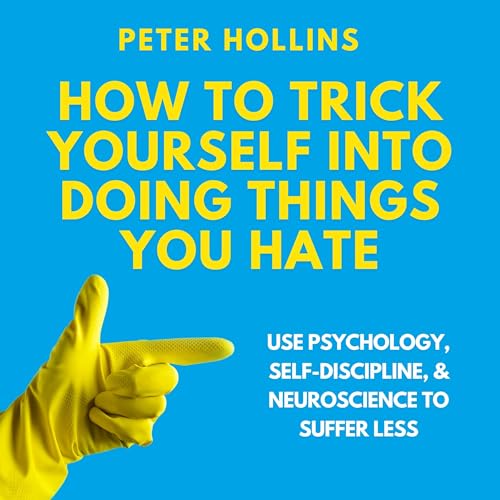
How to Trick Yourself into Doing Things You Hate
Use Psychology, Self-Discipline, and Neuroscience to Suffer Less (Live a Disciplined Life, Book 18)
Falha ao colocar no Carrinho.
Falha ao adicionar à Lista de Desejos.
Falha ao remover da Lista de Desejos
Falha ao adicionar à Biblioteca
Falha ao seguir podcast
Falha ao parar de seguir podcast
Assine e ganhe 30% de desconto neste título
R$ 19,90 /mês
Compre agora por R$ 38,99
Nenhum método de pagamento padrão foi selecionado.
Pedimos desculpas. Não podemos vender este produto com o método de pagamento selecionado
-
Narrado por:
-
Russell Newton
-
De:
-
Peter Hollins
Sobre este áudio
Your rise in life is directly connected to doing things that you hate. It's the necessary evil in life.
Skills are easy to learn. But the ability to get things done, no matter how you feel and no matter the circumstances? Now that's a personality trait that can take you anywhere you want to go.
The goals that you want to achieve in life—they are all possible through discomfort.
HOW TO TRICK YOURSELF TO DO THINGS YOU HATE is the ultimate guide on how to play nicely with your brain. Sometimes it feels like your brain is your biggest opponent, but here you can learn how to make it work for you.
It's like the dentist that convinces a child into thinking that brushing their teeth is great for fighting monsters. Whatever the method, we achieve the end result, and that's what you'll get in this book.
Self-discipline and willpower are the best habits, because everything stems from them.
Peter Hollins has studied psychology and peak human performance for over a dozen years and is a bestselling author. He has worked with a multitude of individuals to unlock their potential and path towards success. His writing draws on his academic, coaching, and research experience.
Don't always rely on self-discipline and willpower—arm yourself with more!
-Action-oriented decision-making methods
-3 specific types of self-discipline, and how you need all of them for success
-How to subtract from your day to actually add more
-Dark and bright spots and what they have to do with your sense of motivation
-Getting into the psychology of 'motion' versus 'action'
-Destroying the illusion of readiness in favor of actually being ready and willing
©2024 Peter Hollins (P)2024 Peter Hollins
